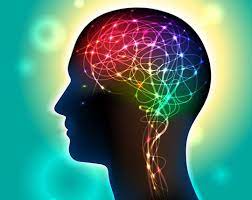
Trauma and the Brain: What Therapists Need to Know
This training provides an in-depth overview of how trauma impacts the brain and body, with a focus on the hypothalamus-pituitary-adrenal (HPA) axis. It explores the physiological and neurological mechanisms behind the stress response and its long-term effects. Participants will also examine the role of adverse childhood experiences (ACEs) in shaping mental and physical health. Strategies for trauma-informed care are discussed to support recovery and resilience.
Upon completion of this training, learners will be able to:
- Describe the function and role of the HPA axis in the body’s stress response.
- Analyze the impact of trauma on brain development and functioning.
- Understand the link between adverse childhood experiences and long-term health outcomes.
- Apply trauma-informed practices to support individuals in managing stress and building resilience.
Social workers completing this course receive 3 Clinical asynchronous continuing education credits.
For other board approvals, this course qualifies for 3 hours of Clinical continuing education training.
Course Instructor: Leo DeBroeck
Recording Date: 12/17/2023
Recorded Live Webinar with downloadable presentation slides and/or handouts, evaluation, and a required quiz. The learner is required to pass with a 70% or higher to achieve the CE certificate of completion. The learner is able to reset the test until a satisfactory score is achieved. CE Training Workshops, LLC, provider #1770, is approved as an ACE provider to offer social work continuing education by the Association of Social Work Boards (ASWB) Approved Continuing Education (ACE) program. Regulatory boards are the final authority on courses accepted for continuing education credit. ACE provider approval period: 8/2/2022 – 8/2/2025. CE Training Workshops, LLC has been approved by NBCC as an Approved Continuing Education Provider, ACEP No. 7091. Programs that do not qualify for NBCC credit are clearly identified. CE Training Workshops, LLC is solely responsible for all aspects of the programs. System Requirements: Firefox, Chrome, Brave, Safari, Edge on any modern operating system (Windows, MacOS, Linux, Android, iOS). A desktop browser is recommended. We do not provide support resources for issues encountered using a mobile device. For more information about our policies and board approval statements, please visit our FAQS page.
Leo DeBroeck is a Licensed Mental Health Counselor and Child Mental Health Specialist in Washington State. He is CBT Plus certified through the University of Washington and Harborview Sexual Assault and Traumatic Stress Center. He has completed his Master’s of Science in Clinical Psychology. He has worked in several different levels of care for mental health treatment including long-term inpatient care, WISe wraparound intensive services, school-based therapy services, and outpatient clinical settings.
Trauma and the Brain: What Therapists Need to Know
Objective #1: Understand the Structure and Function of the HPA Axis
- Identify the three primary components: Hypothalamus, Pituitary Gland, and Adrenal Cortex.
- Explore each component’s physiological roles: hormonal signaling, stress response, and regulation.
- Examine how feedback loops maintain cortisol balance and what happens when these loops are disrupted (e.g., Cushing’s, Addison’s).
- Discuss the implications of dysregulation in trauma survivors and those with PTSD.
Objective #2: Analyze the Role of the Brain in Processing and Storing Trauma
- Review functional imaging technologies (fMRI, EEG, PET) used to study brain responses to trauma.
- Explain differences in brain structure and function observed in traumatized individuals.
- Understand how the amygdala, hippocampus, and prefrontal cortex contribute to memory, hypervigilance, and emotional regulation.
- Consider clinical observations and case studies (e.g., Philip’s car accident trauma) to identify trauma symptoms and neural correlates.
Objective #3: Explore the Impact of Adverse Childhood Experiences (ACEs) on Brain and Behavior
- Define ACEs and describe their measurement via CDC tools and surveys.
- Correlate high ACE scores with long-term health outcomes, including mental illness, chronic disease, and behavioral issues.
- Understand the concept of “toxic stress” and its neurological embedding during development.
- Apply resilience and protective factors (e.g., family support, mentoring, peer networks) in treatment planning.
Objective #4: Integrate Neurobiological Knowledge into Trauma-Informed Care Practices
- Translate HPA axis and epigenetic knowledge into psychoeducation for clients.
- Tailor clinical interventions that support regulation (e.g., mindfulness, biofeedback, narrative therapy).
- Explore the adaptability of the brain through neuroplasticity and the role of supportive environments in healing.
- Discuss the ethical delivery of trauma-informed care—being culturally competent and attuned to individual context.


